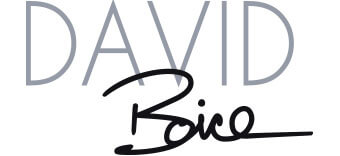“I want to be just like (insert Dealer name).”

Are you sure?
Each week, a growing number of new or prospective clients ask us to provide, “whatever (insert dealer name) is doing that is working so well.” The belief being, if they work with the same company and use the same technology, the results will also be the same. Maybe, maybe not.
Why?
We are fortunate to serve many OEM’s and over 1500 progressive dealers in the automotive, RV, Powersports, marine, and motorcycle industries. A common belief amongst them is that by substantially improving and personalizing their customer’s experience, they will, in turn, complete more transactions. In this regard, they are customer experience mavericks. Their belief system (and ours) has formed the entire basis for our Apollo technology platform.
Before you try to emulate a dealer, you perceive as successful, I would encourage you also to evaluate changing the way you think about retail. We know that change, whether good or bad, is resisted with equal intensity. While that is true for humans, it is even more true for organizations.
To be as successful as a progressive retailer, it requires more than just switching companies. It requires re-thinking as well. One change, without the other, is a formula for continuously switching vendors or strategies and then wondering why you are not getting similar results.
Here are five out of a list of many real-world examples of how progressive dealers think versus a typical retailer. So, before you change companies, ask yourself, are you ready to be like dealers who think this way?
1.) Let us start with an easy one–scheduling service online. Progressive dealers want fewer inbound phone calls and chats to schedule service. Is that a typo? No. They think scheduling services online should be easier and faster and ideally completed with just a few simple clicks or voice commands. The common thinking and old KPI’s reward conversion metrics for more calls and chats. The more conversions, the better, right? Wrong. Progressive dealers consider those KPIs outdated, less attractive, and not in the best interest of their customers. Ideally, they want most service appointments to be scheduled online without ever requiring a customer to speak with a human or chat with a bot. More online service appointments and fewer inbound calls/chats equal fewer failure points with decreased operating expenses.
2.) Progressive dealers believe in providing customers with all the information they need online to complete a sales or service transaction quickly and efficiently. Providing their contact information is only a voluntary step along the way. Traditional thinking requires the customer to provide all their contact information as a necessary first step. Most dealership advertising and websites are littered with interruptions during the process of requesting contact information. Innovative dealers need traditional leads but focus more on developing a seamless information-based customer experience without interruption.
3.) Progressive dealers believe the primary purpose of their website is to facilitate sales and service transactions. Commonly, automotive websites are overwhelmed with slow 3rd party widgets solely designed to extract contact information from consumers in exchange for the promise of a better deal, accurate price or payment, higher trade value, etc. Conversions, not transactions, are King. Progressive dealers believe these constant distractions undermine the very purpose of their website, which is to help them sell and service more cars.
4.) Progressive dealers believe in the value of humans answering inbound texts during business hours. As a percentage, there is no higher type of engagement that converts to a sales or service transaction better than a well-written text exchange between humans. Text is, by far, the most preferred method of communication among adults in the US. Unfortunately, typical thinking is to outsource 100% of these opportunities to bots that cleverly gather customer contact information and routinely end with “Sorry I can’t help you with that. A member of our team will contact you”. A phone call is an opposite outcome the consumer prefers, but ideal for typical retailers who believe their websites should primarily extract information from consumers so they can follow up later. So, rather than having a live exchange upfront, they delay a potential transaction with the hope of reaching a customer later. Progressive dealers think that is illogical.
5.) Progressive dealers prefer fewer technology applications with deeper integration for the companies they choose. Conversely, traditional thinking is, “We cannot put all of our eggs in fewer baskets.” Dealers who think like this often work with 15 or more companies to string together a disjointed customer experience. Progressive dealers gain their inspiration from companies like Tesla, Carvana, Amazon, and others with innovative, fully integrated platforms like Apollo, which provide information and facilitate transactions openly.
Progressive thinking is hard to adjust to because, for 20 years, marketing efforts and websites have delivered a high volume of lead forms and phone calls, not transactions–two distinctly different outcomes. Tesla, Carvana, Vroom, and others have designed their entire platform from scratch (without widgets or independent retailing tools) to facilitate transactions. Their main call to action is to create a secure online account that allows consumers to facilitate a transaction from start to finish. Everything else is a distraction in achieving that goal. We agree.
The bottom line:
The company and technology you choose should reflect how you feel about retailing. Before you make the switch, ensure you are equally committed to thinking differently. Your belief system will dictate your success. Take some time to think about it upfront, so when something does not go as planned, you can stay the course. Along with our progressive clients, we believe the 20-year-old KPIs are outdated and increasingly less useful. Completing sales and service transactions with simplicity and ease should be considered the new standard for success.

